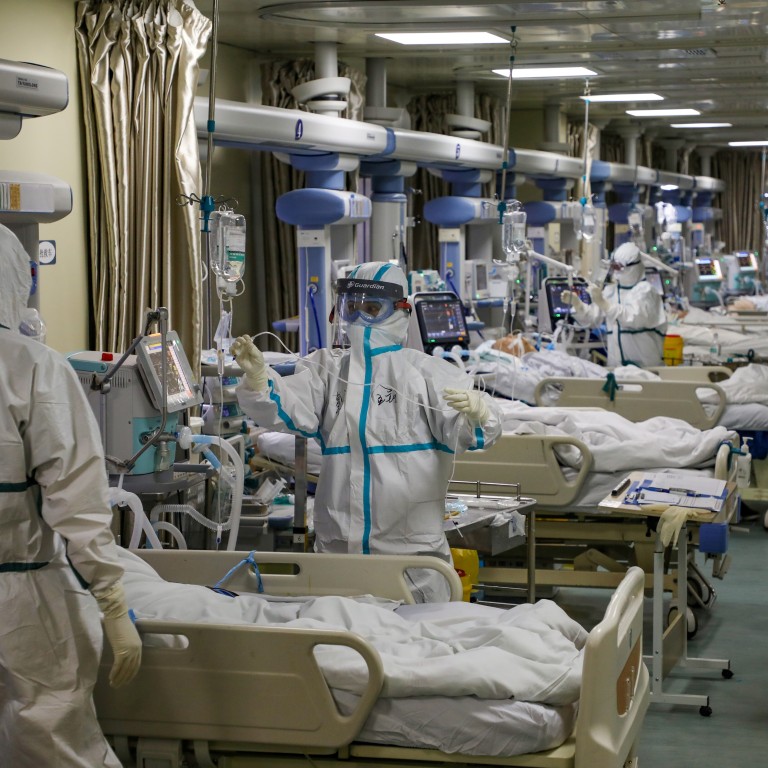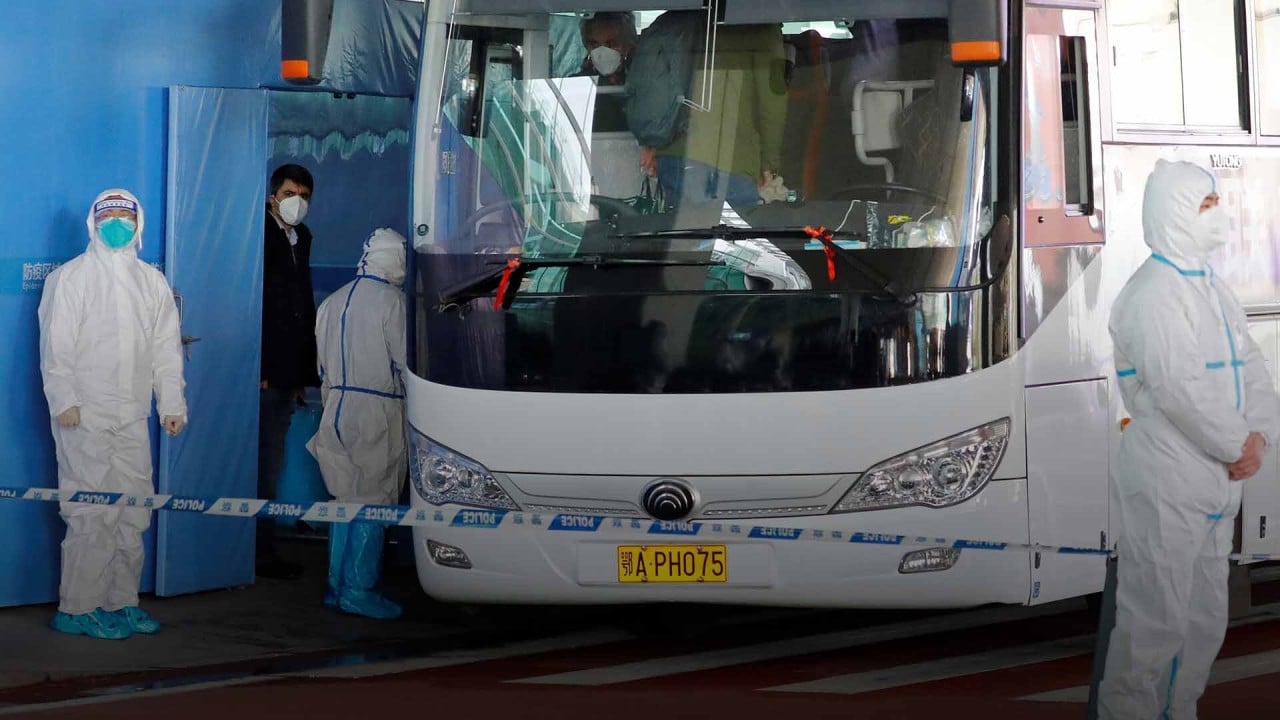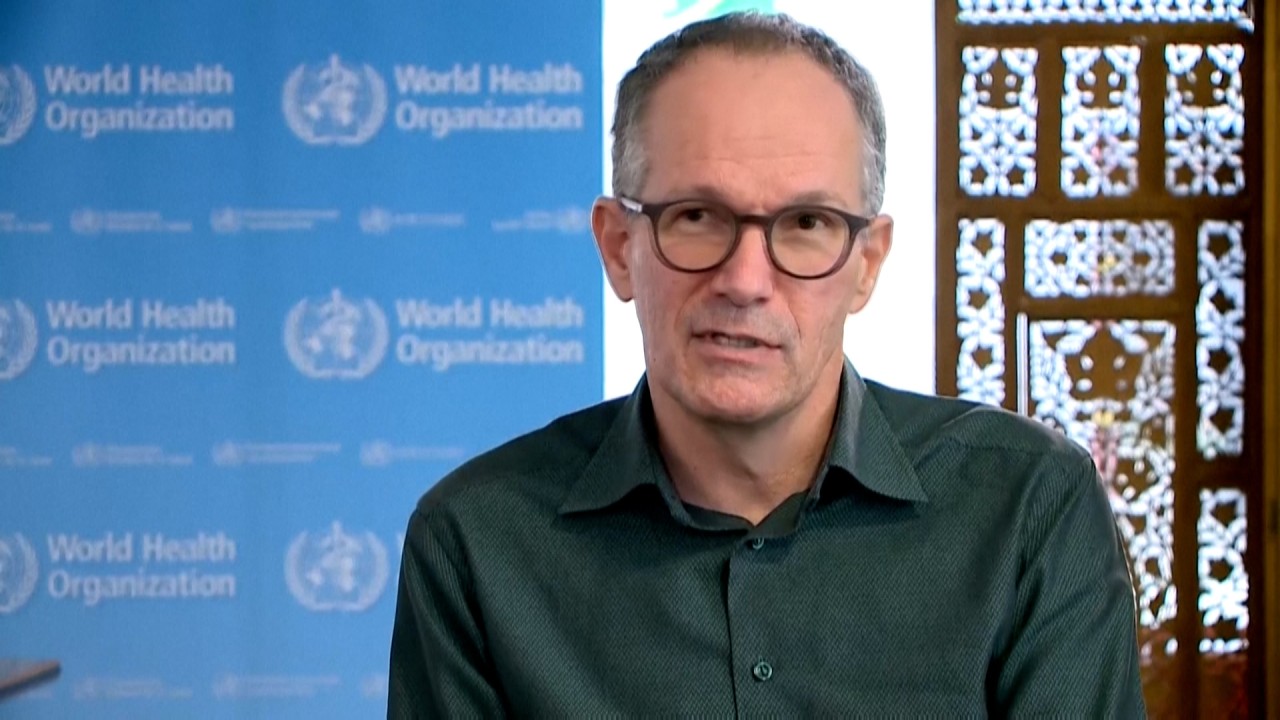
Coronavirus: China calls for revisions to reports at WHO, defends early response
- Two expert reviews suggested shortcomings in Beijing’s actions after health authorities reported first cases in Wuhan
- But China tells executive board the reports made statements that were inconsistent with the facts
Beijing has for months stridently defended its initial response to the virus and sought to present itself as a global model for Covid-19 containment. The country is one of a handful that have largely brought local transmission under control, as the number of cases worldwide has topped 96 million.
But experts have long criticised a three-week period from when the illness was first reported at the end of December to Beijing’s confirmation that it was spreading between people, saying this lag may have fuelled the international spread.

01:47
WHO health experts arrive in Covid-19 epicentre Wuhan to investigate origins of coronavirus
The panel, made up of 13 prominent health experts including China’s top Covid-19 scientist Zhong Nanshan, was tasked by the WHO’s governing body with evaluating the international response to the disease. Part of that work has included creating a timeline of the early stage.
“The initial chronology of the early phase of the outbreak suggests that there was potential for early signs to have been acted on more rapidly, with an escalation of response tied more immediately to the emerging information about the spread of the virus,” their interim report, released on Monday, said in a section not specific to China.
It went on to say that if precautionary principles had been followed, “more timely and stronger warnings of the potential for human-to-human transmission could have been issued by both WHO and national and local authorities”.

In China, Zhong confirmed that the disease was contagious on January 20, 2020. The WHO’s Western Pacific Regional Office had tweeted a day earlier that there was evidence of limited human-to-human transmission.
Meanwhile, another WHO-backed committee reviewing rules on responding to disease outbreaks said Beijing went beyond the required 24 hours when it reported the outbreak to the WHO.
Their interim report to the executive board did, however, note that this was not different in scope or duration from “other similar delays” reported by the WHO and called for the required timeline for countries to make such reports to be examined.
As Chinese cities face new Covid-19 lockdowns, have lessons of 2020 been learned?
Beijing defended its record at the executive board meeting on Tuesday and called on both groups to make revisions.
“China suggests that the review committee and the [independent panel] should further improve the reports and make scientific, objective, fair, comprehensive and balanced assessments,” said Sun Yang, from China’s National Health Commission.
Sun said both reports made statements that were inconsistent with the facts, including that China had waited until January 3 to provide the WHO with information. He said China had communicated with the WHO between January 1 and 3.
But the later date has been confirmed by both the WHO and China in its own white paper outlining the actions it took against Covid-19 – the English translation of which runs to 65 pages.
“Facing the unknown Sars-CoV-2, China immediately notified WHO of the epidemic situation, shared the virus genome sequence at the earliest possible time and took the most comprehensive, thorough, strict prevention and control measures,” Sun said.

02:09
Finding origin of coronavirus 'could be long journey’, says WHO mission leader on way to Wuhan
Yanzhong Huang, senior fellow for global health at the Council on Foreign Relations (CFR) in New York, said the independent panel’s report may be the first time a WHO-affiliated group has indicated there was an initial mishandling of the outbreak in China.
“This implicitly challenges China’s official narrative on the government response … which has all been about how decisive and effective the government response was,” he said.
Covid-19 scientists seek the invisible in Wuhan investigation into deadly pathogen
However, legal scholar David Fidler, also of the CFR and Indiana University’s Maurer School of Law in the US, said the panel’s rhetoric appeared poised to avoid angering China. He noted, for example, that the panel also pointed generally to how very few countries with likely cases swiftly implemented public health containment measures.
“That sends the more ‘diplomatically correct’ message that, well, everyone should have done better early on,” he said.

